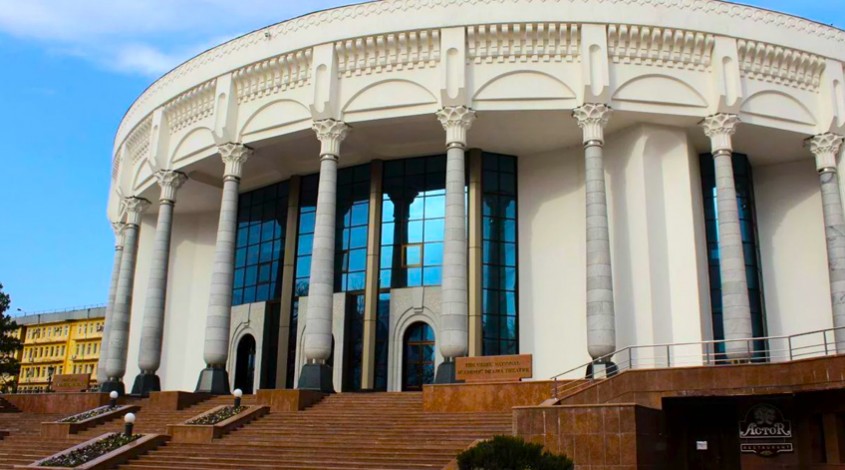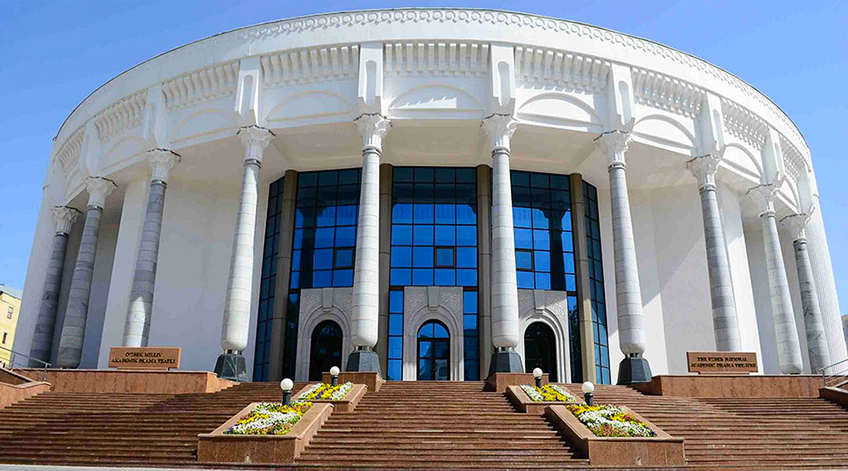
The National Academic Drama Theater of Uzbekistan became one of the first such institutions in the country. In Central Asia, special attention was paid to creativity. Poets, singers, dancers - without this it was impossible to imagine the courts of nobles. Over time, artists began to unite into troupes, organizing larger-scale performances.
Theater as such appeared in Uzbekistan in 1914. Its leader and director of the first performance staged here was the Samarkand figure Aliaskar Askarov. The artists gathered here a year before the opening, which made it possible to carefully prepare the debut production.
The theater received academic status a little later - after 19 years.
In 1941-1945, when Tashkent became a major evacuation center, the theater played an important role in maintaining morale in the rear. The performances were primarily of a patriotic nature and glorified the exploits of the sons of the Uzbek land.
After the end of the war, the theater increasingly staged classics of world drama - Shakespeare, Ostrovsky, Gorky, Gogol, Sophocles, Schiller and many others. But Tashkent residents were especially fond of performances based on the works of their fellow countrymen.
During the period of Soviet rule, the theater was limited in its repertoire, because it was necessary to stage only those plays that met the requirements. With the acquisition of independence, great changes took place in theatrical life in Uzbekistan. Creative groups received the right to independently choose their repertoire and conduct free activities.

In 2001, the theater acquired the status of National. In the same year, reconstruction was carried out here. Changes were expected both in appearance and technical equipment. The theater received modern equipment, the premises were expanded. The theater opened its own museum, and the hall began to have 540 seats.
Initially, the theater was named after the famous Uzbek author Hamza, who made a great contribution to the development of Uzbek literature.
Performances are performed exclusively in Uzbek. But even those who do not speak the language can enjoy attending musical and plastic performances.
Canaan Travel emphasizes the importance of this theatre, a landmark with over a century of history. Don't miss the opportunity to visit here!
